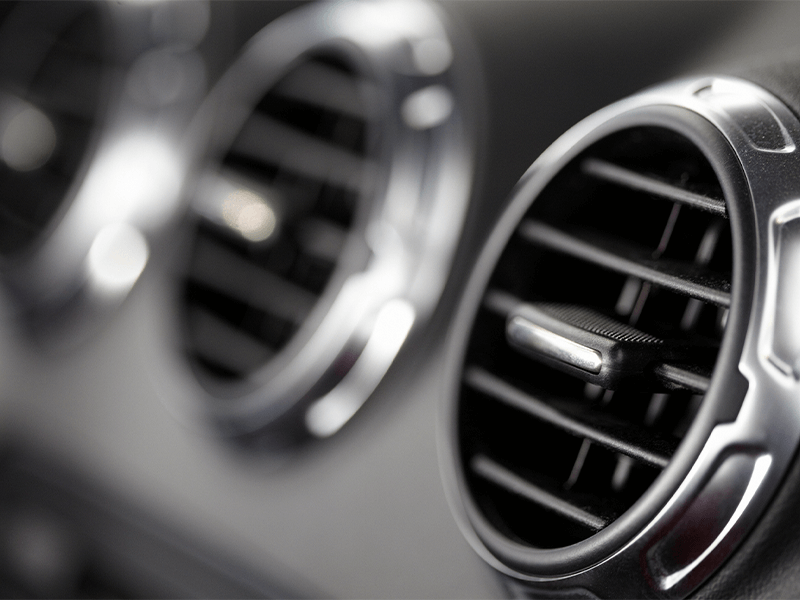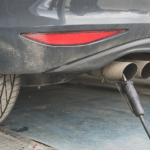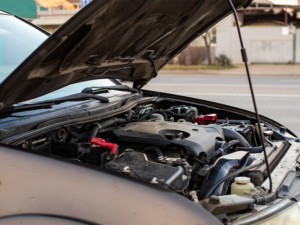
Have you ever wondered why your car’s air conditioning seems less effective during a heatwave or why the heater can’t keep up on the coldest days? Well, as the seasons change, the performance of a vehicle’s air conditioning and heating system can fluctuate. This often requires attention and regular maintenance to prevent breakdowns and ensure their longevity. But before these can be effectively carried out, car owners must understand the impact of seasonal changes on these systems.
Overview of a Car’s HVAC System
The Heating, Ventilation, and Air Conditioning (HVAC) system in a vehicle is engineered to regulate the internal temperature, ensuring comfort for occupants regardless of external weather conditions. This system is responsible for both warming the cabin during cold months and providing cool air during warmer periods.
Central to the HVAC system’s operation is the compressor, which functions as the heart of the air conditioning unit. It pumps refrigerant through the system, absorbing heat from the car’s interior and releasing it outside, thus cooling the cabin air.
Conversely, the heating system relies on the vehicle’s engine heat to warm the air, which is then directed into the cabin. A functioning thermostat and heater core are critical components that facilitate this process and ensure the delivery of warm air when temperatures drop.
Seasonal maintenance of the HVAC system is mandatory to address the wear and tear of components such as the compressor, condenser, and evaporator. Regular checks can identify issues early, preventing the decline in performance of both the AC and heating systems as the seasons change.
Effects of Hot Summer Weather on Your Car’s AC System
During the summer months, the air conditioning system in a vehicle is subjected to intense heat, which can strain the compressor and deplete refrigerant levels. This increased demand can lead to overheating and potential failure of AC components if not properly maintained.
High temperatures can also cause the AC system’s refrigerant to expand, putting additional pressure on hoses and seals. Without regular inspections and servicing, these parts may develop leaks, compromising the system’s efficiency and cooling capacity.
The cabin air filter, often overlooked, plays a major role in maintaining air quality and flow. In summer, it can become clogged with pollen, dust, and debris, all of which reduce the effectiveness of the air conditioning system and could necessitate replacement.
Evaporator coils, on the other hand, are prone to accumulating moisture and contaminants, which can lead to mold growth and unpleasant odors when the AC is in frequent use. A professional cleaning as part of seasonal maintenance can prevent these issues and ensure a pleasant driving experience.
Effects of Cold Winter Weather on Your Car’s Heating System
As winter approaches, the heating system in vehicles faces the challenge of operating in cold conditions, which can thicken engine oil and strain the battery, potentially affecting the system’s efficiency. The heater core, which relies on engine warmth to heat the cabin, requires a well-functioning cooling system to operate effectively.
Sub-zero temperatures can lead to the freezing of condensation within the HVAC system, posing a risk to components such as the heater core and thermostat. These parts must remain free of ice blockages to ensure the smooth delivery of warm air into the vehicle’s interior.
Regular use of the defrosting feature in cold weather puts additional demand on the car’s heating system, necessitating a check of the antifreeze levels to prevent freezing and ensure proper heat distribution. A well-maintained antifreeze mixture is important for the protection and operation of the heating system during winter months.
Moisture accumulation in the HVAC system during colder months can also lead to the growth of mold and mildew, which not only impairs air quality but can also obstruct airflow. Vehicle owners should ensure the system is dry and clean to maintain optimal heating performance and cabin comfort.
Seasonal Transitions: Spring and Fall Impacts
Spring and fall bring milder temperatures, but these transitional periods can still stress a car’s HVAC system. During these seasons, inconsistent weather patterns may require frequent switching between heating and cooling, which can wear down system components more rapidly.
In spring, the melting of winter’s ice and snow introduces moisture that can affect the HVAC system’s efficiency. It’s advisable to check for and repair any leaks that may have developed, ensuring the air conditioning system is prepared for the upcoming summer heat.
Fall’s cooler temperatures prompt vehicle owners to start relying on their heating systems after months of inactivity. This shift can reveal underlying issues, such as a malfunctioning heater core or a clogged cabin filter, which must be addressed to avoid discomfort as winter approaches.
Seasonal maintenance during these transitional months is needed to identify and rectify any HVAC system irregularities. Ensuring the system operates smoothly during spring and fall can prevent more significant problems when extreme temperatures set in.
Preventative Maintenance Tips for Every Season
To safeguard the air conditioning system against the summer heat, vehicle owners should schedule regular AC service checks. These inspections ensure refrigerant levels are adequate and system components like the compressor and evaporator are functioning correctly.
Before the onset of winter, it is prudent to have the heating system evaluated, with a focus on the heater core and thermostat to prevent freezing and ensure efficient cabin heating. A professional can verify antifreeze concentration and inspect for any blockages that could impede performance.
During spring and fall, one should also address any HVAC irregularities that arise from fluctuating temperatures. This includes checking for leaks post-winter and preparing the heating system for increased use in cooler autumn weather.
Year-round, replacing the cabin air filter and cleaning the HVAC system can significantly improve air quality and flow, prevent mold growth, and maintain the system’s efficiency. These simple steps are part of essential vehicle maintenance that contributes to the longevity of the car’s climate control capabilities.
Upgrading and Modernizing Your HVAC System
Upgrading the HVAC system in a vehicle can significantly improve its resilience to seasonal changes and ensure consistent comfort for passengers. Modern systems are designed with advanced components that better withstand temperature extremes and require less frequent maintenance.
Vehicle owners may consider retrofitting their cars with multi-zone climate control, allowing for individualized temperature settings that cater to the preferences of each occupant. This upgrade not only improves comfort but also optimizes the system’s operation, reducing the strain on its components during seasonal shifts.
Integrating smart technology into the HVAC system also offers the convenience of remote monitoring and control, which can preemptively adjust cabin temperatures before a journey begins. Such innovations contribute to more efficient use of the heating and cooling functions and adapt seamlessly to the varying demands of different seasons.
Meanwhile, professional installation of high-efficiency filters and regular system calibration can extend the life of a car’s climate control system. These enhancements ensure that the HVAC system operates at peak performance year-round and provides a reliable defense against the impact of seasonal temperature fluctuations.
Spotting Early Warning Signs and Knowing When to Seek Help
Vehicle owners should look out for signs of HVAC system distress, such as reduced airflow or a lack of cold air during summer, as these could indicate air conditioning issues. These symptoms may suggest a depleted refrigerant level or a malfunctioning compressor and require professional assessment.
In colder months, an inability to produce warm air or a persistent chill inside the cabin can signal heating system complications. Such conditions often point to a faulty heater core or thermostat, which demand prompt attention to restore proper function.
Unusual noises emanating from the HVAC system, like rattling or hissing, are also early indicators of component wear or leaks. Addressing these auditory cues quickly can prevent more extensive damage and maintain the system’s integrity.
Lastly, the presence of strange odors when the AC or heating is activated should prompt an immediate inspection. These odors can be symptomatic of mold growth or a clogged cabin filter, both of which compromise air quality and system performance.
Your Year-Long Comfort is Guaranteed!
At Owens 30 North Auto Repair, our team of experienced technicians specializes in identifying and addressing HVAC issues to keep your vehicle prepared for any seasonal challenge. With a reputation for quality workmanship and personalized service, we’re here to help ensure your comfort and safety on the road all year long. Contact us today to schedule your next HVAC system check-up and experience the difference our professional care can make.






